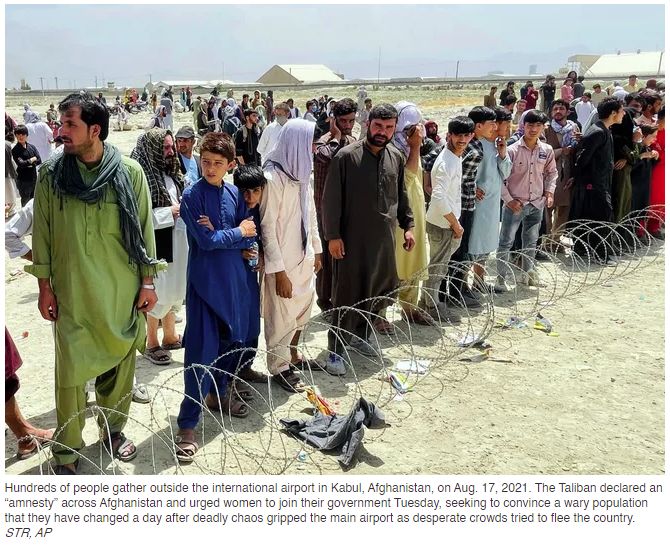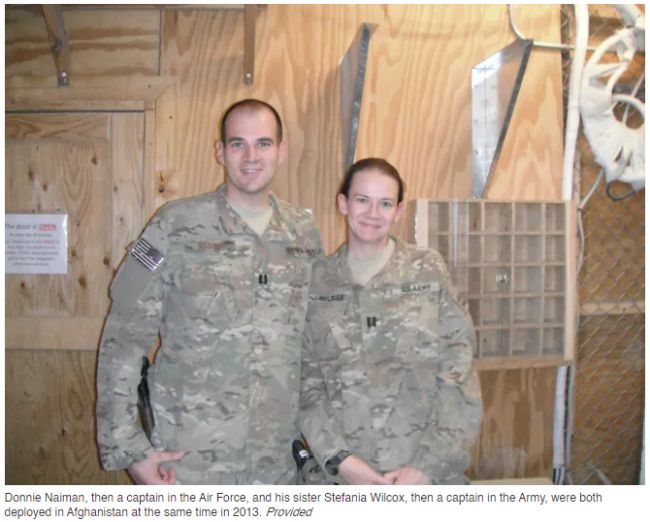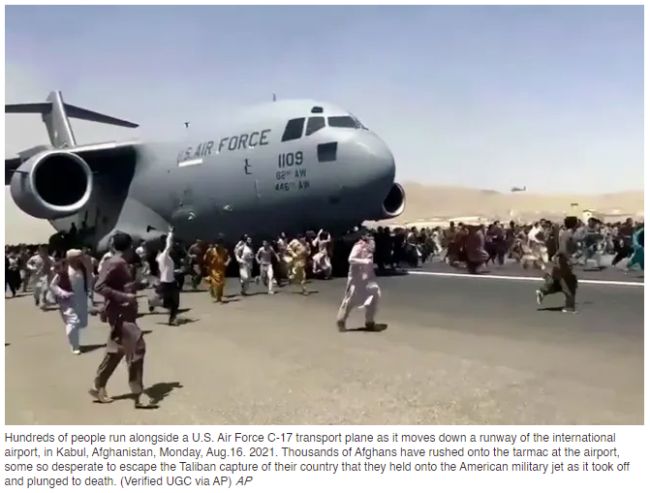
As an Air Force veteran who served in Afghanistan, I want to share something that is happening now, that may not be very visible. This isn't about whether it was time to leave Afghanistan or not. This is about helping friends, their families, young children, women, LGBTQ people, and others.
Right now, a humanitarian crisis is unfolding in Afghanistan that touches many veterans who served in Afghanistan very personally. We worked closely and forged trusting bonds with Afghan interpreters, contractors and other partners. Through social media and the internet, we now have a front row seat to the tragedy unfolding for them.
Veterans are receiving Facebook, LinkedIn, email and text messages and calls from the Afghan people who helped and protected us. Our friends, partners and their families are desperate to escape the country. They are being harassed, attacked, threatened and don't know how to help themselves or their children.
It is fortunate that in today's connected world, our Afghan partners can at least find the people they have worked with, so that we can try to help them with their visa applications. Indeed, many veterans have tried to help, successfully and unsuccessfully, with SIV applications over the years, not just in this current crisis.
At the same time, this connectivity shines a light on the challenges and problems of our evacuation efforts. It is crushing for our veterans to see these shortfalls.

Among the Afghan interpreters, contractors, their families and others, many cannot get to Kabul's airport, and they are trapped in faraway towns, expecting to be arrested or killed shortly. Some are in Kabul, but cannot travel to the airport to be evacuated. Some have made it to the Kabul airport only to find that they cannot get inside, despite their status, documents, or priority, because of the crowds thronging at the gate, intermittent gunfire, and other violence. Waiting outside the Kabul airport for days, in hopes of being admitted to the relative safety of the airport, Afghans are suffering from extreme sun exposure, dehydration and a lack of food. They cannot travel back into the city for supplies because the Taliban may not allow them to get close to the airport again.
This is a very dynamic situation, but I can relay what a former Afghan contractor has been communicating to me over the last several days, as he waits outside the airport with his wife and four young children. His two-year-old is in bad shape from dehydration and sun exposure. Going home would be a worse fate. According to his neighbor, the Taliban was there yesterday looking for them.
What can you do? Please contact your Congress members and the president to urge them to provide basic humanitarian relief to our Afghan partners, both inside the airport and those in the immediate vicinity of the airport gate. Water, food and shelter outside the airport walls are needed. Then, ask our Congress and president to do everything in their power to get our allies and their families out of immediate danger.

Don't say, "Well, strategic interests, forever war, fight for yourself, time to go." We have an obligation to assist these people now. Many of them directly and indirectly supported and saved U.S. lives over the last 20 years. Some are right there at the Kabul airport and within our country's grasp to help now. Real humans and worthy people. They may never have another shot to escape the country we are leaving behind. And, we may not have a realistic chance to help them again.
The immediate life and safety needs of our Afghan partners are the priority. But, I also worry about the moral injury to our veterans if, as a country, we do not act to help Afghan people now. Our veterans will not forget the real-time pleas for assistance, the real-time crying and begging, and the real-time deaths of their partners, friends and their families. Don't let the cries of our Afghan allies fall silent. We can help in Kabul right now.
Donnie Naiman is a Cincinnati-area attorney and lives in Montgomery. He is a 2007 graduate of the U.S. Air Force Academy and served for eight years in the U.S. Air Force from 2007 to 2015, including deployments to Kuwait and Afghanistan. While in Afghanistan from July 2013 to January 2014, he was the Chief of the Contracting Office for the Combined Joint Special Operations Task Force–Afghanistan, where his team's mission was supporting U.S. special operators and Afghan partners by negotiating and overseeing contracts for supplies and services.
Originally published by Cincinnati.com
The content of this article is intended to provide a general guide to the subject matter. Specialist advice should be sought about your specific circumstances.

